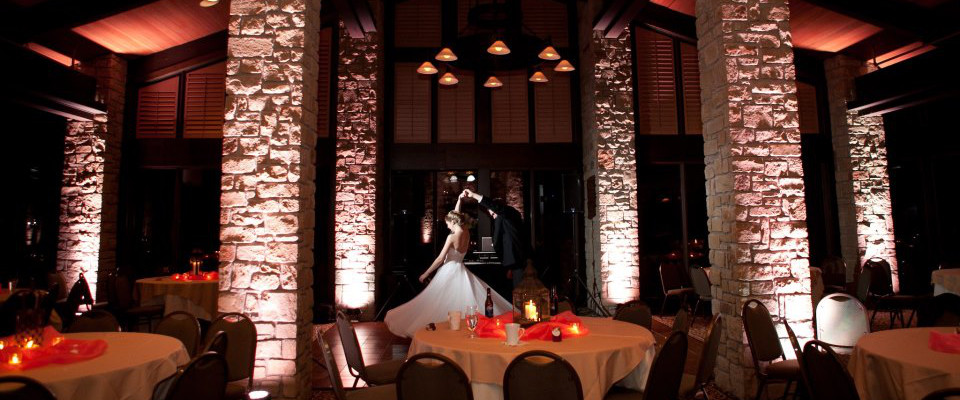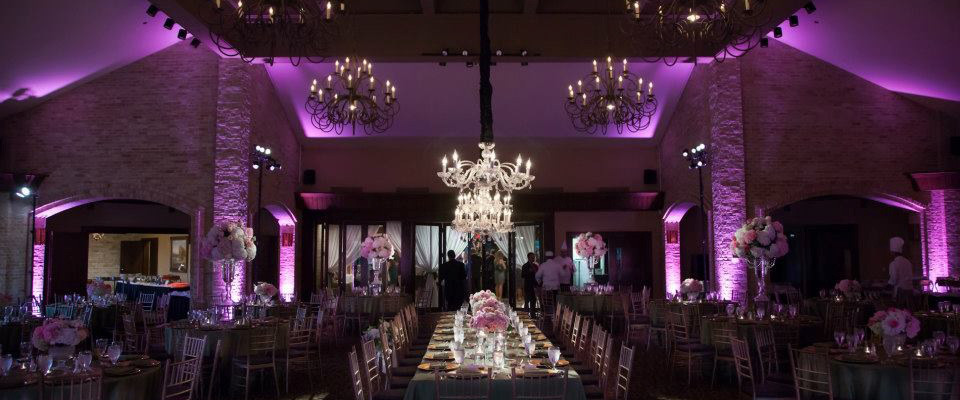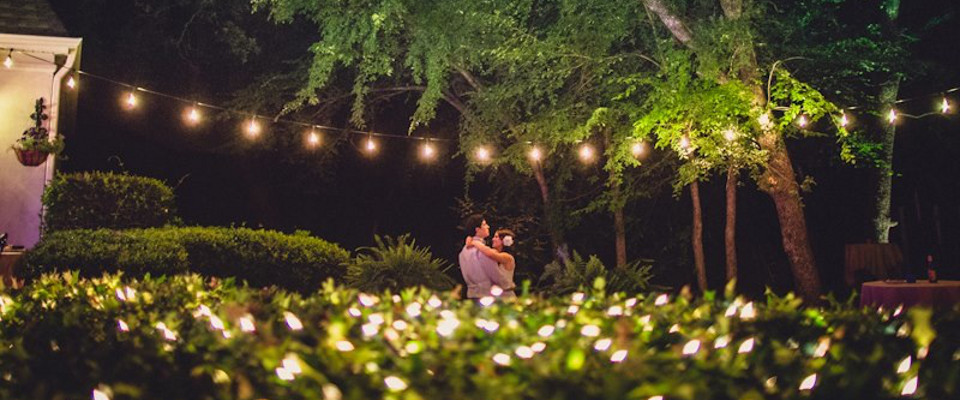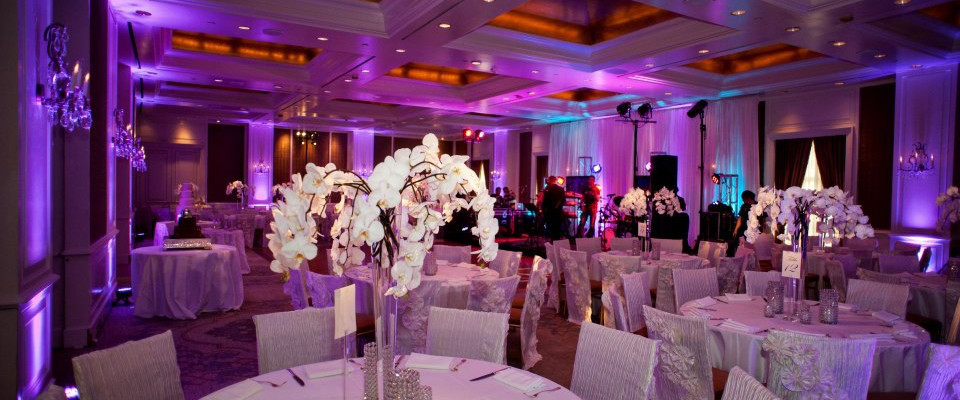LOADING
What do you do to motivate the crowd if nobody is dancing?
We get asked this question from time to time, and it's a tough one to answer. That's because there are several factors that influence a packed (or empty) dance floor. The short answer is we change the music. Having played in front of hundreds of audiences of all ages and backgrounds, we have a very good handle on what works and what doesn't, and we can usually find the right songs to get people out of their seats. But sometimes even great music isn't enough. Other factors are working against us.
Sometimes those factors are beyond our control. Let's take a look at them below. Even if some of them apply to your wedding, that doesn't mean you won't have a lot of dancing; they are just possible reasons. It's rare that we have trouble getting people on the dance floor.
Sometimes those factors are beyond our control. Let's take a look at them below. Even if some of them apply to your wedding, that doesn't mean you won't have a lot of dancing; they are just possible reasons. It's rare that we have trouble getting people on the dance floor.
Are we playing the right music?
This is the biggest thing that is in the DJ's control, and it's an important one. We spend a good amount of time customizing our clients' playlists based on the music they like and the songs they think their guests will enjoy.
We also have a lot of experience with reading the crowd and picking songs that usually work well. We label each song with the year it was a hit, so we can easily find songs from a certain era. Just by guessing the approximate ages of your guests, we can get a great starting point for picking the right music to get them dancing.
And of course, if a certain song or type of music isn't working, we simply change to something else. We also encourage requests, if it's okay with you. When someone requests something, it's almost guaranteed they will dance to it and bring some friends with them to the floor.
Do your guests usually enjoy dancing?
Not all people like to dance. That doesn't mean they aren't having a good time! We've had plenty of people tell us how much they enjoyed the music we played, yet they may have only danced to one or two songs (or maybe not at all). You know your friends and family better than we do, so you probably already have a good idea if they are dancers or not.
Are you serving alcohol?
Let's face it. People tend to loosen up a little (or a lot) when they've had some drinks. :)
Is there a lot of light in the room?
Often times, people think they look silly when they dance. So, when the lights are dimmer, you tend to see more people willing to hit the floor. This is also why you tend to see less dancing at daytime weddings. If it's an evening wedding, and if we feel too much light is making people shy away from the dance floor, we'll find the venue coordinator to dim the lights a bit more.
Are you (the bride & groom) and your wedding party dancing?
Many times, your guests will follow your lead. So, if you are hanging out at the bar with the wedding party, there's a chance your guests may do the same. If you are spending most of your time outside, and the dance floor is inside, your other guests may head outside with you. On the contrary, if your guests see you on the dance floor having fun, they will probably join you.
Are there enough slow songs?
Don't underestimate the power of slow songs. Unless your guests are all young and single, a lot of couples enjoy slow dancing. In fact, some people don't feel comfortable fast dancing, but they are perfectly fine with slow dancing. That doesn't mean we play slow music all night. Quite the opposite. We usually keep things uptempo; however, we like to sprinkle in a slow song or two every 20 to 30 minutes when we feel that the people on the floor are getting tired. This gives them a chance to rest for a few minutes, refresh their drink, or share a dance with their significant other.
Are many of your guests "older," or do they have young kids with them?
We had a bride who wanted her wedding to be a "big party with lots of dancing," but this was a big factor working against her. Most of her guests were her parents' friends, either nearing retirement age or had young kids with them at the reception. Parents are (hopefully) not going to let their kids run wild at your wedding, which means they will be keeping an eye on the little ones rather than dancing. The exception is, of course, if the kids are old enough to enjoy dancing, too, and are on the dance floor most of the night.
What day of the week is your wedding?
If it's on a Sunday night, perhaps most people will have to work the next day. They may not stay as late or drink as much if they have to wake up at 7:00 the next morning.
Is your room and/or dance floor too big for your party?
Even if you have 300 people at your wedding, the room can feel empty if it's designed to hold twice as many people than you have invited. A packed room makes your wedding feel more like a "party," while a large open room allows people to spread out and takes away from the energy of the reception.
The same holds true for the dance floor. We deejayed a wedding where not only was the room too big, but the dance floor was large enough to fit more than half of the guests on it at once. No matter how many people we had on the floor at any given time, it still seemed empty.
Final thoughts
Again, we have found that the best motivator is to play songs that work well with the audience we're playing for. At weddings, we usually play a variety of genres and eras of music, because we want to get everyone on the dance floor at least for a song or two, if possible.
What we don't do is anything that your guests would find cheesy or embarrassing. We don't want anyone at your wedding to feel uncomfortable. We can't take people by the hand and pull them onto the dance floor. What we can do is play great music that people will enjoy, whether they dance or not, and follow your input and suggestions for the music you want played at your wedding.
This is the biggest thing that is in the DJ's control, and it's an important one. We spend a good amount of time customizing our clients' playlists based on the music they like and the songs they think their guests will enjoy.
We also have a lot of experience with reading the crowd and picking songs that usually work well. We label each song with the year it was a hit, so we can easily find songs from a certain era. Just by guessing the approximate ages of your guests, we can get a great starting point for picking the right music to get them dancing.
And of course, if a certain song or type of music isn't working, we simply change to something else. We also encourage requests, if it's okay with you. When someone requests something, it's almost guaranteed they will dance to it and bring some friends with them to the floor.
Do your guests usually enjoy dancing?
Not all people like to dance. That doesn't mean they aren't having a good time! We've had plenty of people tell us how much they enjoyed the music we played, yet they may have only danced to one or two songs (or maybe not at all). You know your friends and family better than we do, so you probably already have a good idea if they are dancers or not.
Are you serving alcohol?
Let's face it. People tend to loosen up a little (or a lot) when they've had some drinks. :)
Is there a lot of light in the room?
Often times, people think they look silly when they dance. So, when the lights are dimmer, you tend to see more people willing to hit the floor. This is also why you tend to see less dancing at daytime weddings. If it's an evening wedding, and if we feel too much light is making people shy away from the dance floor, we'll find the venue coordinator to dim the lights a bit more.
Are you (the bride & groom) and your wedding party dancing?
Many times, your guests will follow your lead. So, if you are hanging out at the bar with the wedding party, there's a chance your guests may do the same. If you are spending most of your time outside, and the dance floor is inside, your other guests may head outside with you. On the contrary, if your guests see you on the dance floor having fun, they will probably join you.
Are there enough slow songs?
Don't underestimate the power of slow songs. Unless your guests are all young and single, a lot of couples enjoy slow dancing. In fact, some people don't feel comfortable fast dancing, but they are perfectly fine with slow dancing. That doesn't mean we play slow music all night. Quite the opposite. We usually keep things uptempo; however, we like to sprinkle in a slow song or two every 20 to 30 minutes when we feel that the people on the floor are getting tired. This gives them a chance to rest for a few minutes, refresh their drink, or share a dance with their significant other.
Are many of your guests "older," or do they have young kids with them?
We had a bride who wanted her wedding to be a "big party with lots of dancing," but this was a big factor working against her. Most of her guests were her parents' friends, either nearing retirement age or had young kids with them at the reception. Parents are (hopefully) not going to let their kids run wild at your wedding, which means they will be keeping an eye on the little ones rather than dancing. The exception is, of course, if the kids are old enough to enjoy dancing, too, and are on the dance floor most of the night.
What day of the week is your wedding?
If it's on a Sunday night, perhaps most people will have to work the next day. They may not stay as late or drink as much if they have to wake up at 7:00 the next morning.
Is your room and/or dance floor too big for your party?
Even if you have 300 people at your wedding, the room can feel empty if it's designed to hold twice as many people than you have invited. A packed room makes your wedding feel more like a "party," while a large open room allows people to spread out and takes away from the energy of the reception.
The same holds true for the dance floor. We deejayed a wedding where not only was the room too big, but the dance floor was large enough to fit more than half of the guests on it at once. No matter how many people we had on the floor at any given time, it still seemed empty.
Final thoughts
Again, we have found that the best motivator is to play songs that work well with the audience we're playing for. At weddings, we usually play a variety of genres and eras of music, because we want to get everyone on the dance floor at least for a song or two, if possible.
What we don't do is anything that your guests would find cheesy or embarrassing. We don't want anyone at your wedding to feel uncomfortable. We can't take people by the hand and pull them onto the dance floor. What we can do is play great music that people will enjoy, whether they dance or not, and follow your input and suggestions for the music you want played at your wedding.












